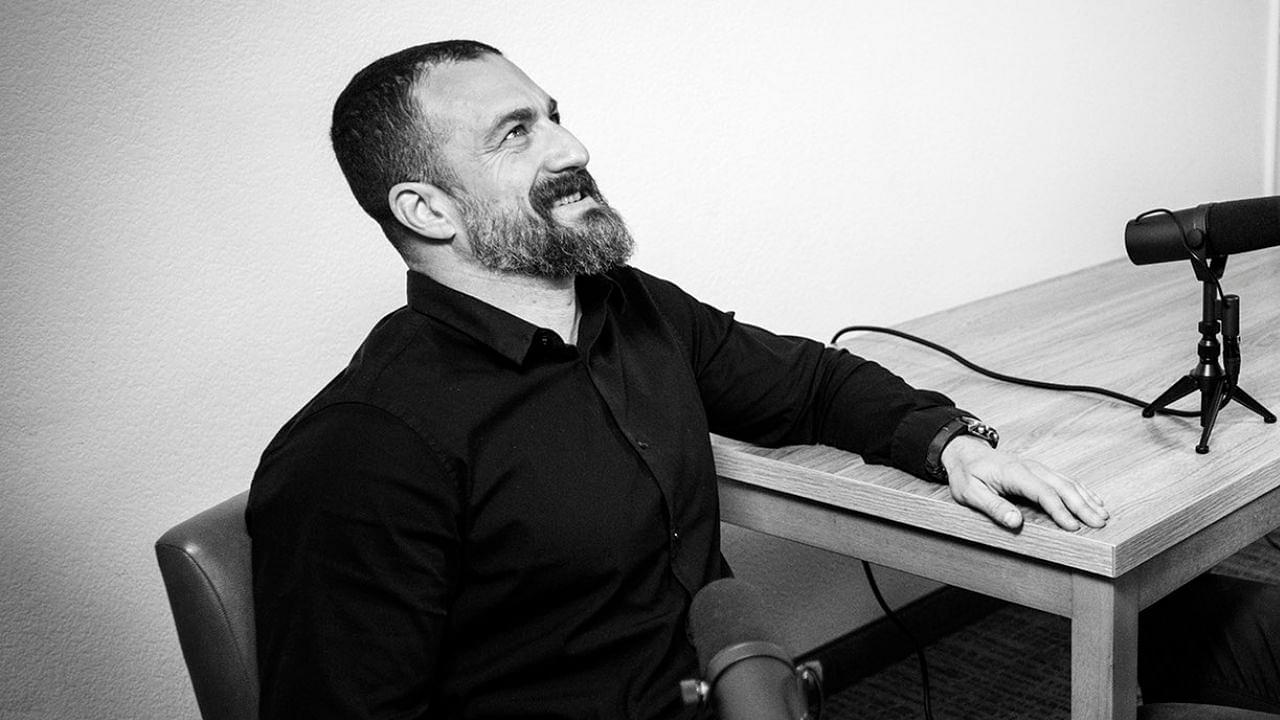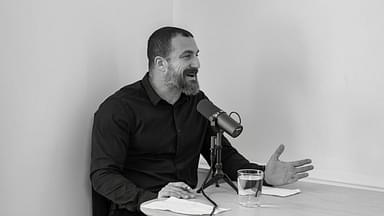Sleep quality is one of the most essential things for a healthy body. While clocking 7-9 hours of sleep is important, the magic happens when we have a night of quality sleep. That is when our body releases growth hormone, primes us for the next day, and repairs itself. In a recent podcast on ‘How to Prevent & Treat Cold & Flu’ on Huberman Labs, Dr. Andrew Huberman speaks about the importance of sleep and exercise.
While sharing his thoughts on how one can prevent colds and flu, Andrew Huberman discusses how the two likely things that preceded this were sleep deprivation and exercise. There might be times when one gets to sleep for only 2 hours at night and pushes themselves to work out the next day. Some people can do that kind of training regularly and not fall sick. However, this is not the case for everyone.
During the podcast, Huberman shares his own example of how he does not push himself too hard to work out if he is sleep-deprived. So, this is a call for moderation in terms of the duration and intensity of the exercise that you’re doing. An hour or less of moderate-intensity to high-intensity exercise depends on when you’re doing it. Exercise during this time (morning) activates the innate immune system, which creates an immune response. It increases inflammation, cytokines, and stress.
That being said, for people who work at places like hospitals or clinics and interact with kids or adults who are carrying infections home from school but are not ill themselves, the question remains, “If I am sleep-deprived, should I exercise?” Huberman states that it is a tricky question, and his initial answer for many years was no, but studies have proven otherwise.
“If you’re sleep-deprived, you’re better off not exercising. However, I now need to qualify that answer because data are showing that if you’re sleep-deprived and you exercise, especially if you exercise early in the day, it doesn’t disrupt your sleep schedule.”
Furthermore, Dr. Andrew Huberman states that you should always choose between going back to sleep if you’re sleep-deprived. However, if there is a situation where you cannot go back to bed, you should work out during the morning. Reducing the intensity and duration of that exercise by about 25 percent or even 50 percent should allow you to offset any of the negative effects of sleep deprivation you possess.
“Exercise is not a replacement for sleep. Allow yourself to get enough sleep at the appropriate time later that night and back onto a regular schedule that keeps your innate immune system tuned up and ready to combat any colds or flu.”
Therefore, getting an appropriate amount of sleep is important to one’s health. Exercise also serves as an essential tool to enhance the function of the innate immune system and maintain health. Along with this, Huberman debunked the myth of vitamin C as a cold and flu remedy.
Andrew Huberman discusses whether vitamin C is the solution for your cold and flu
The age-old notion that vitamin C is necessary for overall health and better immune functioning has been familiar to most of us. Andrew Huberman, though, has different thoughts on this.
Huberman shares that a megadose of vitamin C mightn’t give you the cold comfort you expect. As such, this is nothing but a myth. He added that while it shortens the time someone is ill, it does not have any practical effect. Huberman also mentioned that a heavy dosage can have gastric effects.
During the podcast, Huberman brought up vitamin D and its benefits for staying healthy. As per meta-analysis, vitamin D can help the innate immune system become stronger, which, in turn, can act in defense against flu and cold. Sunlight is an aspect that helps increase vitamin D. Anyone who gets regular sunlight in their eyes early in the day gets a lot of benefits.
“Sunlight increases the amount of vitamin D in your system, but a bunch of other things as well. It increases in cortisol, increases in dopamine, and increases in serotonin and relates to improved immune system function.”
The consumption of vitamins can help to a minimal extent in combating colds and flu. Therefore, taking the right amount of vitamins and achieving good-quality sleep are equally important for a healthy lifestyle.




